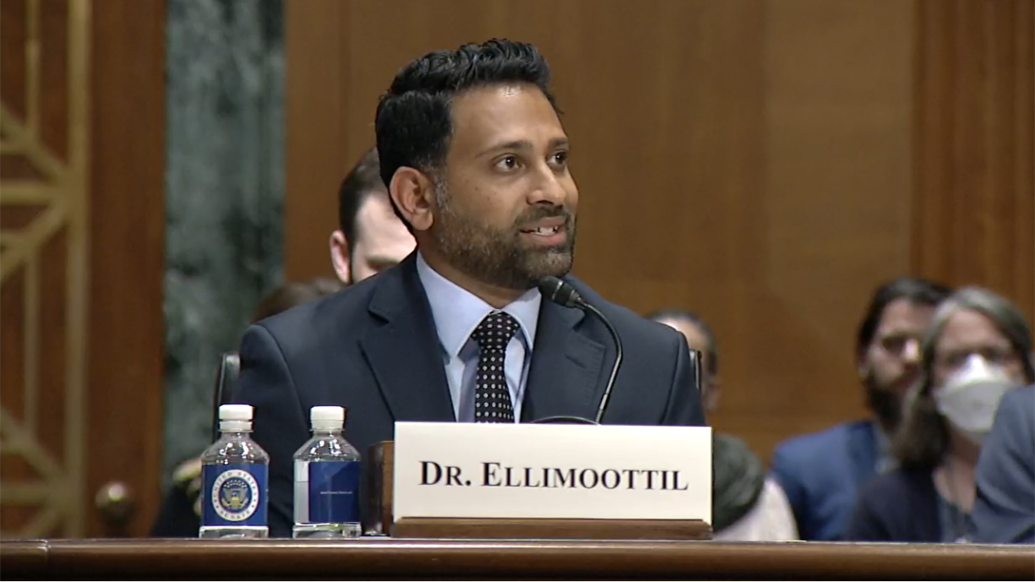Research and clinical experience points to need for immediate policy action to ensure continued access for people with Medicare and more
11:45 AM
Author |

To many Americans, telehealth options for connecting with their health care providers seemed to spring to life suddenly in 2020 – even though some virtual care options started years before that.
Now, experts warn, telehealth could face a slow or even a rapid death, if policymakers don’t take specific actions soon.
That’s because temporary Medicare rules created at the start of the COVID-19 pandemic will expire on December 31, 2024.
Four of those experts – including Michigan Medicine’s Chad Ellimoottil, M.D., M.S., – testified about the urgent need for action before the Senate Finance Committee’s Subcommittee on Health Care on November 14.
The hearing, held by Senators who play a key role in formulating Medicare policy for the nation, is available to watch.
“The slow death of telehealth may occur when patients and providers become increasingly frustrated by regulations and unexpected bills and ultimately stop using telehealth,” Ellimoottil warned in his prepared testimony.
“Making telehealth expansion permanent is about ensuring that Medicare beneficiaries have choices in their care, whether it’s in-person, via video, or through a phone call.”
Ellimoottil cited research by his Telehealth Research Incubator team, and others at the University of Michigan and beyond, on the use of telehealth before and since March 2020.
He’s the past director of the telehealth research effort at the U-M Institute for Healthcare Policy and Innovation, and medical director of virtual care for the U-M Medical Group, Michigan Medicine’s faculty group practice.
He also spoke from his experience as a urologist connecting with patients considering surgery or managing symptoms – including ones in rural areas with poor connectivity for video-based appointments.
For them, he told the senators, the ability to hold audio-only appointments over a phone line and have Medicare pay for the session will be vital.
Also crucial, he said, is making permanent Medicare’s rules allowing telehealth appointments to originate from a patient’s home or other location, not just an approved clinical location as was the case before the pandemic.
Allowing flexibility for geographic location is vital, too.
Ellimoottil also called for telehealth-based care to be reimbursed at the same rate as in-person care, because of the ongoing cost of maintaining clinics and staff. He also warned that regulators avoid putting in place “guardrails” about telehealth that aren’t based in clinical evidence as a way of preventing fraud and abuse.
What happens in the next few months with Medicare policy, he and the other witnesses told the senators, will have ripple effects for people who have other forms of health insurance too. In fact, the uncertainty about Medicare payment for telehealth past the end of 2024 has already started to create problems.
“If Medicare continues to view expanded telehealth coverage as 'temporary,' commercial payers will reduce or eliminate their coverage for telehealth services,” he said.
“This is already underway, and we are witnessing the development of a fragmented telehealth payment system that creates confusion for both patients and providers.”
Learn more about the history of telemedicine at Michigan Medicine, and about the use of telehealth across Michigan.

Explore a variety of health care news & stories by visiting the Health Lab home page for more articles.

Department of Communication at Michigan Medicine
Want top health & research news weekly? Sign up for Health Lab’s newsletters today!




